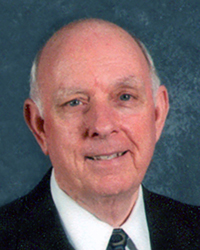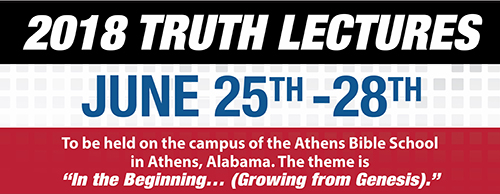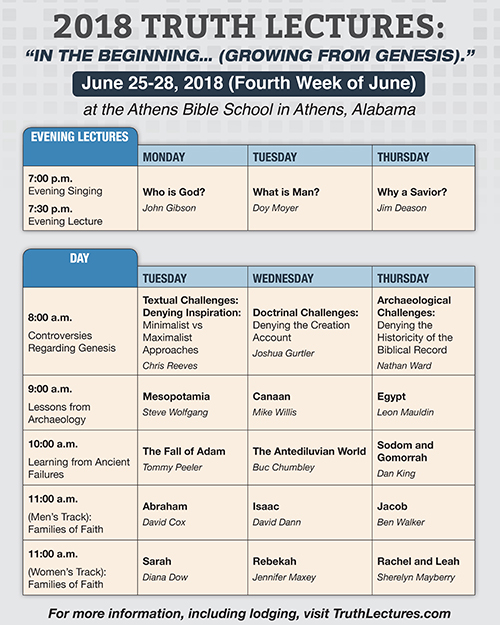

by Bobby L. Graham
Synopsis: In an article that was originally entitled "Opposition to the Restoration Cause from the Church of Christ: What a Change Two Centuries Have Wrought!" Bobby notes how those who lose faith in the principle of restoration evidence increasing tolerance for error they once recognized and opposed.
How could a people who were born of the restoration spirit reach the complacency which sets aside respectful regard for the authoritative Scriptures, reaches for the novel, and the common in religion, stretches across the chasm of religious differences and begins to blend into the religious fabric of the day, with no apparent qualms about New Testament warnings of apostasy? How could those who once called for the unity of all upon the solid foundation of the Bible and the Bible alone abandon both the biblical standard and its call for unity to satisfy themselves in the diversity of denominationalism? This sad reality also proclaims that many in Churches of Christ have no more regard for the ground once occupied by proponents of the Restoration Cause and for the Scriptural principles hallowing that ground than those in the Disciples of Christ/Christian Church. The plea of the Restoration Movement now means nothing to them, because they have abandoned the distinctiveness demanded by its principles in their attempt to blend into the general religious scene.
What could move those who professed a belief in the principles of restoration to take positions opposite to those they formerly accepted? Nothing but a decaying faith could bring about this result! What this means is that not all claiming to be in Christ's church are really there. A one-time profession of faith in the deity and Lordship of Jesus Christ or some loose affiliation with the church is no guarantee of enduring loyalty to the King.
Such a radical shift in spirit, teaching, and practice is displayed in a fairly recent article appearing in The Tennessean out of Nashville, Bob Smietana's "Churches of Christ Drop Isolationist View, Work with Other Faiths" (1/31/2010 [Note: Online link no longer available]). The article is based on an interview of Doug Sanders, Associate Minister at Otter Creek Church in Brentwood.
Sanders is quoted as once believing that people in the Church of Christ had all the answers and that others lacked those answers. The author then described Churches of Christ as previously keeping mostly to themselves and shunning other Christians and interfaith projects because they thought their approach to church was God's way. He then stated that congregations like Otter Creek were taking a more progressive view of their faith by adding instruments to church services on Sunday nights and during the week, holding a vespers service on Wednesday night with chanting and a liturgical Communion service, and by cooperating with other faith groups on charitable projects. Smietana then contrasted Sanders' view that they are being faithful to their traditions and to the Bible with that of critics charging Otter Creek and others with replacing real Christianity with a watered-down version.
The article then briefly summarized the work of restorationists as going back to the Bible to create (find, BLG) a simpler kind of church in their search for unity among religious people. In the Bible they found the New Testament model for the church of all time, including Communion each Sunday, immersion of adults, no ordained clergy, autonomous local churches with no denominational structure, and only singing for the music in worship. Some are reported as singing as tradition while others do so because of the biblical mandate of singing. Among that last group there exists a reluctance to work with people from other faiths because of not wishing to endorse their doctrines and practices. Personal convictions are responsible for the isolationism which progressive churches are abandoning. In other words, the fundamental principles of the Restoration Movement, found first in the Scriptures, are no longer tenets important to many. It is a case of basic unbelief. This basic unbelief of principles earlier esteemed is now permitting Otter Creek and others like them to work with Baptists, Methodists, Presbyterians, Jews, Catholics, and other believers in efforts they think make sense.
Lee Camp, Professor of Theology and Ethics at Lipscomb University, faults Alexander Campbell with assuming all could reach the same conclusion by simply reading the Bible; but "it wasn't quite so simple," he added. The existence of different opinions, then, supposedly proves that reaching a harmonious conclusion in Bible study and practice is impossible. Camp argued the movement changed from its earlier thinking of being Christians only to being the only Christians. He protested earlier teachings against wearing shorts, drinking, dancing, and mixed swimming as being moralistic; but Camp also claims that churches like Otter Creek "are rediscovering who we were in the 19th Century," something lost in the Restoration Movement.
Disciples of Christ Historical Society President Glenn Carson said that churches like Otter Creek were creating a fourth stream of the Restoration Movement, distinct from the rest. He described Richland Hills near Fort Worth, Woodmont Hills in Nashville, and others like Otter Creek as operating in the community-church mode, not the Church of Christ mode, in opening up to other denominations.
Professor Camp warned that the progressive congregations could become plain vanilla Evangelicals by losing their distinctive nature. He claims that others, who are missing out on an important part of worship, could learn from the progressive churches the importance of weekly Communion.
Rubel Shelly, former minister at Woodmont Hills and current president of Rochester College in Michigan, believes that Churches of Christ must adapt in the future to avoid becoming ineffective. He says more basic issues like believing in God and believing in Jesus as God's representative rather than in Allah or in Buddhism define the present and future, not every nuance of belief as in the past.
Acquaintance with the Restoration Movement, especially its distinct principles, is sufficient to demonstrate that what is happening in Churches of Christ constitutes a radical departure from the earlier movement. The same principles held earlier forbid the turns that such progressives have taken and the conclusions they have reached. Practices such as instrumental music in worship, women in the pulpit, making common cause with the denominations, accepting people on their denominational baptism, and extending the Lord's Supper to times besides the first day of the week and occasions such as weddings could never have begun with the understanding held by early restoration leaders and those who accepted their message. In fact, the initiation of a New Hermeneutic, now heard of the last three decades, was a necessary development if old views of things were to abandoned and such new practices were to be adopted.
The following list, while not necessarily exhaustive, does establish the wall of separation from such progressive views and attitudes and the new practices to which those attitudes led:
Because God so fashioned (# 1) and so intended (# 2) His word, it necessarily follows that all can understand the Bible alike (not that they do understand it alike, but they can).
We can understand the Scriptures by adhering to the same principles followed by Jesus and the apostles––obedience to commands, following approved examples, and drawing necessary conclusions. (Call it what you will, ridicule it as CENI, or even add the "S" for Silence of the Scriptures [CENI-S], it can easily be demonstrated that these principles were inherent in New Testament teaching, warning, reproof, correction, and acceptable practice!)
God does not allow humans to chart their own course by presuming divine silence to be permissive, or in any other way to supplement or to reduce the body of teaching found in the New Testament—the faith once delivered, taught, mandated, and used as the foundation of approved practice in the work of the apostles.
It is impossible to introduce the innovations of the progressives and simultaneously to uphold these principles. Those who were so inclined came to a fork in the road where they had to renounce their principles or surrender their practices. They could not travel down both forks of the road! They cherished their human practices more than they esteemed the principles of respect for the Scriptures long held in the Restoration Movement. Readers of The Alabama Restoration Journal have long been treated by Uncle Isaac to multiplied instances of such aberrant thinking and divisive practices.
An earlier issue (Volume 5, Issue 2, 37) featured "A Bill of Divorcement" by a New Testament Christian, who could no longer abide, not only the constant drifting in practice from New Testament ground but also the erosion in principle of its soil, so that there remains little place to stand as one believing the New Testament. Its major points are here reproduced:
When the New Testament foundation on which we stand is gone, it is impossible to stand as New Testament Christians. There is nothing left to be or to do as Christians. Such a development follows the same path, just a few centuries later, as earlier pursued by denominationalists who accepted as their model, not the New Testament model, but the Roman Catholic model, in their attempts to "reform" the existing and dominant structure of their day. The Protestant Reformation resulted. The result in our time will be the generic brand of "Christianity" now present in the Disciples of Christ/Christian Church denomination, so far separated from the New Testament's teaching and practice as to be hardly identifiable with what early leaders of the Restoration Movement taught or approved. Such is the result when people value amalgamation more than isolation/separation!
Author Bio: Bobby L. Graham preaches and is an elder for the Old Moulton Rd church of Christ. He and his wife, Karen, have three children: Richard, Mary Katherine Winland (Darren), and Laura Paschall (Jeremy). He can be reached at bobbylgraham@pclnet.net.

